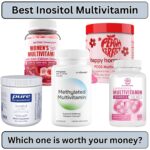
With several colder months still up ahead of us, maintaining a well-balanced immune system is super important for your health and wellbeing. Maybe you loosened up a bit over the holidays and took a break from your usual healthier lifestyle. Or maybe making healthy changes to your routine is your resolution for this year. Either way, sticking to healthy habits can help support your immune system. Even making a few small changes to your lifestyle can already help to make a difference. Read on for our tips to boost your immune system naturally to keep you going strong into the new year!
But first, how does the immune system work?
The immune system is a highly complex network that exists to help defend our bodies against illnesses.
It does this by responding to antigens, substances that provoke an immune response such as bacteria, viruses, chemicals, and pollen. When an immune response is triggered, the body tries to fight off the antigens by destroying or attempting to destroy them.
Making changes to your eating and lifestyle habits can help to balance and strengthen your immune function. Here are some ways you can boost your immune system:
1) Sleep Is Key
Sleep can play a role in balancing and supporting immunity so that the body can fight off illnesses efficiently. In fact, studies show that a lack of sleep might increase your chances of catching a common cold.
Usually, when we talk about sleep, we talk about getting enough sleep. Getting an adequate amount of sleep is essential, with the National Sleep Foundation recommending that adults get somewhere between 7 and 9 hours of sleep every night.
However, it’s not just about the quantity. The quality of sleep is a factor that’s often overlooked. Sleep quality is more about how well you sleep than how many hours of shuteye you get. Quality sleep plays a role in determining how energized and well-rested you feel when you wake up.
2) Hydrate, Hydrate, Hydrate
Dehydration can have a negative impact on several of the bodily functions, such as digestion and kidney function. It can also slow down the movement of nutrients in the bloodstream. It can lead to headaches and feelings of sluggishness which may impact both your mood and physical wellbeing.
Drinking enough water also aids in removing waste and toxins from the body which is important for staying healthy.
The recommended daily fluid intake depends on a number of factors such as sex, age, and climate. One recommendation lies somewhere between 2 and 3.7 liters of fluid every day (from both food and beverages).
3) Maintain A Healthy Diet
The trick is to maintain proper nutrition in the long-term to reap the most benefits. Eating one healthy meal or orange here and there is not enough to protect you against catching a cold.
Making sure that your body receives the energy and micronutrients it needs, can give it a boost to keep fighting off viruses and germs. You can support it by trying to:
Add Healthy Fats
Most people could benefit from including more healthy fats in their diet. Omega-3 fatty acids, in particular, could contribute to reducing levels of inflammation which can strengthen your immune system. Olive oil, fatty fish (for example, salmon), and walnuts are all great sources of Omega-3 fatty acids.
Eat Plenty Of Whole Plant Foods
Adding more whole-foods, particularly plant-based food, can help to give your immune system a much-needed boost.
Whole, plant foods are plant-based foods that have been minimally processed, so think fruits, vegetables, nuts, and legumes.
These foods are high in essential vitamins, minerals, and antioxidants that can support immunity. They offer many benefits, from improving gut health to aiding in the reduction of inflammation.
Eating a sufficient amount of fruits and vegetables every day is one way you can meet your daily recommended values of vitamins and minerals to help keep you healthy. If you find it hard to consume enough of these, green juices can offer a convenient way to increase your fruit and veggie intake.
Limit Your Sugar Intake
Consuming high levels of added sugars can have detrimental effects on your overall health.
Not only is it linked to chronic conditions such as type 2 diabetes or heart disease which impact your immunity, but it may also directly compromise your immune response. Research suggests that consuming certain levels of sugar could weaken your immunity. This can make it harder for you to fight off antigens.
The American Heart Association recommends that women consume no more than 6 teaspoons (25 grams) of sugar per day. They recommend that men consume no more than 9 teaspoons (36 grams) of sugar per day.
Get Enough Probiotics
Keeping your gut happy and healthy may be a step towards helping you boost your immune system.
Research suggests that the gut microbiome might be connected to the immune system and its function.
Try to include fermented foods such as sauerkraut, kimchi, yogurt, or drinks such as kefir and kombucha in your diet to increase your probiotic intake and boost immunity.
If fermented foods and drinks aren’t your thing, you might consider taking a probiotic supplement to help give your health a boost.
4) Exercise Regularly
It supports weight management and can even help you sleep better! The positive impact exercise has on your overall health helps to support and strengthen your immune system. According to studies, moderate physical activity can also have anti-inflammatory effects on the body. Over time it can reduce systemic inflammation and can give your immune function a boost.
When you engage in physical activity, like a 30-minute jog, your body releases certain types of white blood cells into your bloodstream. They are circulated around your body, trying to detect and destroy pathogens. This does not mean that exercise will immediately cause your body to hunt down germs or viruses, but it could increase your chances of fighting them off.
You should also be cautious not to overdo it. Prolonged, vigorous, high-intensity exercise can weaken your immune response rather than strengthen it.
The Physical Activity Guidelines for Americans recommend that adults engage in 150 to 300 minutes of moderate-intensity aerobic activity per week to reap the most benefits. This includes brisk walking, dancing, or even doing household chores.
5) Reduce Stress
In recent years we’ve become more and more aware of the impact that stress can have on our health in the long run. Chronic, long-term stress affects your psychological and mental health. It can also have harmful effects on your physical health too, including your immune system.

According to researchers, chronic stress can suppress your immune response. This can prevent you from being able to build a strong, well-balanced immune system and increases your chances of getting sick.
Some activities that may reduce stress levels are meditation, yoga, exercise, and journaling. Getting good quality sleep and keeping in touch with friends and family can also play their part in lowering stress levels. Both your body and your mind will thank you.
6) Support Your Body With Supplements
Some of these that may assist in strengthening your immune system include:
- Vitamin C: This is a popular vitamin supplement for immune support. It helps to support the function of immune cells which can help to protect you against infections.
- Vitamin D: Having a vitamin D deficiency may weaken your immune system. Make sure to maintain the daily requirements of this essential vitamin.
- Zinc: This mineral is vital for the normal functioning of your immune system.
- Probiotics: As we mentioned earlier, keeping your gut in good condition is important for supporting immunity. Probiotics offer one way of boosting gut health by introducing good bacteria into the gut.
Taking these vitamins and minerals in supplement form may be especially useful for those who do not get enough of them from their diets. Before taking a supplement remember to consult your physician for medical advice to check that it is suitable for you. Make sure to look for products that have been third-party lab tested to ensure their safety and efficacy.
Supplements don’t provide a magic cure for preventing viruses or illnesses, so be wary of companies that claim otherwise. This is something to bear in mind especially now in the COVID-19 era as some companies might claim their supplement may aid in the prevention of the disease.
7) Change Your Lifestyle Habits
You can also take steps to support your immunity and prevent infection by making changes in other lifestyle habits. These include:
- Quitting or cutting down on smoking
- Reducing your alcohol intake
- Improving hand hygiene (make sure to wash your hands with warm water and soap to break down bacteria and viruses that can cause diarrhoeal and respiratory illnesses.)
How Can I Boost My Immune System? The Bottom Line:
- Get sufficient amounts of quality sleep
- Avoid the side effects of dehydration by drinking water to stay hydrated
- Stick to a wholesome, well-balanced diet that includes plenty of whole plant foods, healthy fats, probiotics and is low in added sugars
- Engage in moderate exercise regularly
- Lower your stress levels
- Consider taking a supplement to support your wellbeing




